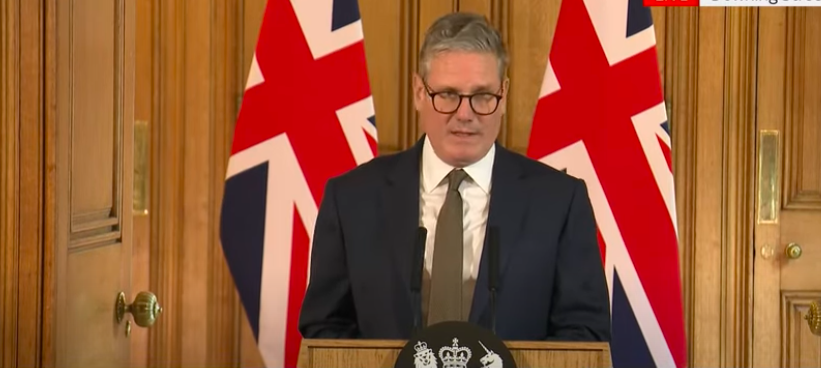Starmer wanted U.K. ‘weaned off’ China, now move to overhaul relationship

The Chinese Foreign Ministry greeted Labour’s victory in the UK elections with the hope of getting the Sino-British relationship moving on the right track. The ministry didn’t mention—though it no doubt remembered—that the new British prime minister Keir Starmer wanted Britain to be “weaned off” China only a year ago.
A year is a long time in politics, of course. And power comes with responsibilities. Labour’s new Foreign Secretary David Lammy’s goal is not to wean Britain off China but overhaul the relationship after 14 years of alleged Conservative “misdirection”.
Lammy is rushing to deliver on a promise to launch a review of London’s relationship with Beijing within 100 days of taking office, reports Politico.
Labour plans “a full audit across Whitehall of our relationship with China so that we can set the direction and a course,” Lammy told an audience at the Chatham House think tank last month.
Significantly, the Sino-sceptic think tank China Strategic Risks Institute (CSRI) advised Lammy’s team on the scope and the focus of the audit.
The former Australian prime minister and China expert Kevin Rudd has been named as a possible candidate to lead the audit.
Starmer on China a year ago
Starmer spoke about the need to be weaned off China on a visit to Montreal, Canada, for a gathering of world leaders in September last year.
Speaking to Anne McElvoy, the host of Politico’s Power Play podcast, Starmer said: “We need to be absolutely clear about the security of the U.K. and issues like spying and interference which goes on and of course the human rights abuses that are taking place.”
“How do we wean ourselves off Chinese influence across the world?” Starmer asked. “There are big questions that progressive governments could face together.” However, he acknowledged that it was impossible to “distance ourselves” completely from China on issues like climate change.
UK-China trade
China is Britain’s fifth largest trading partner with UK exports to China totalling £31.5 billion and UK imports from China worth £58.3 billion in 2023.
China is the “greatest threat” to the UK’s economic security, Conservative former prime minister Rishi Sunak said in March, after accusing Beijing of being behind cyberattacks against British MPs and democratic institutions.
But Tory ministers have been “in denial about national security concerns, complacent about interference, and championed investment in sensitive industries, despite the risks,” a Labour spokesperson argued.
They promised Labour would reset the “bilateral relationship [with Beijing], assessing where we will need to compete, where we can cooperate and where we will need to challenge”.
Britain under pressure
Britain is under pressure to follow allies such as the European Union, U.S. and Canada. and investigate Chinese state subsidies for electric vehicles now flooding foreign markets. According to the Center for Strategic and International Studies, China has injected $231 billion in support for its EV industry since 2009.
Britain’s luxury carmakers and other high-end sectors fear they could suffer in any trade war with China.
Labour is “going to be in a tough spot”, said Steven Lynch, former managing director of the British Chamber of Commerce in China.
China would not hesitate to retaliate, he added, pointing out it had already done that against countries like Australia and Lithuania.
Enjoying this article?
Subscribe to get more stories like this delivered to your inbox.
China has threatened retaliatory measures against the European Union after the latter announced plans to impose tariffs of up to 38.1 per cent on Chinese EVs following a probe.
“Given how central and how complex the relationship with China will be in the decades ahead, it’s a good idea to take a long, hard look at it from the start and set a strategy that can last for one or even two parliaments,” said Peter Ricketts, the U.K.’s first national security adviser from 2010 to 2012 under then-Conservative prime minister David Cameron.
China is “a security threat and foreign policy adversary in some areas,” but also a major market for the U.K. and a critical source of imports.
“The balance might change a bit,” Ricketts said of any new strategy. But he would be surprised if the Labour policy on China turned out to be very different from the Tories’, he added.
